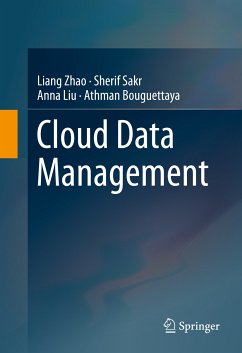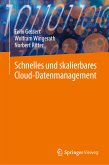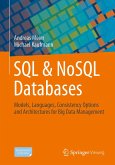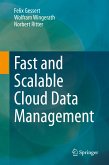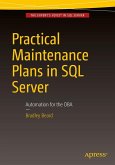Service Level Agreements (SLA) represent the contract which captures the agreed upon guarantees between a service provider and its customers. The specifications of existing service level agreements (SLA) for cloud services are not designed to flexibly handle even relatively straightforward performance and technical requirements of consumer applications. We present a novel approach for SLA-based management of cloud-hosted databases from the consumer perspective and an end-to-end framework for consumer-centric SLA management of cloud-hosted databases. The framework facilitates adaptive and dynamic provisioning of the database tier of the software applications based on application-defined policies for satisfying their own SLA performance requirements, avoiding the cost of any SLA violation and controlling the monetary cost of the allocated computing resources. In this framework, the SLA of the consumer applications are declaratively defined in terms of goals which are subjected to a number of constraints that are specific to the application requirements. The framework continuously monitors the application-defined SLA and automatically triggers the execution of necessary corrective actions (scaling out/in the database tier) when required. The framework is database platform-agnostic, uses virtualization-based database replication mechanisms and requires zero source code changes of the cloud-hosted software applications.
Dieser Download kann aus rechtlichen Gründen nur mit Rechnungsadresse in A, B, BG, CY, CZ, D, DK, EW, E, FIN, F, GR, HR, H, IRL, I, LT, L, LR, M, NL, PL, P, R, S, SLO, SK ausgeliefert werden.
"The book appears particularly relevant as it offers timely coverage of the requirements, characteristics, and challenges of managing large-scale cloud-based data services. ... this is a very interesting piece of work, filled with a lot of timely information and written from a very practical perspective to include material on implementation costs for different data management options. A good and enjoyable read for advanced students and practitioners working in the field." (Alessandro Berni, Computing Reviews, August, 2014)

